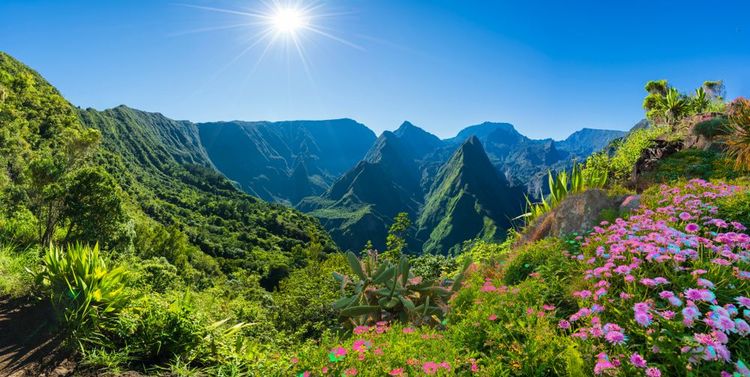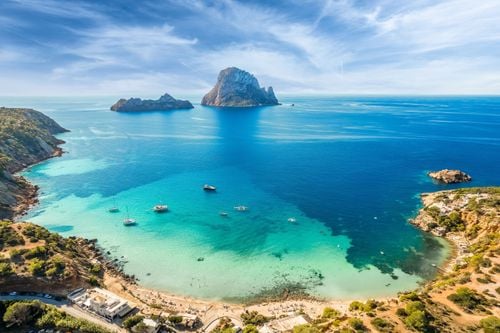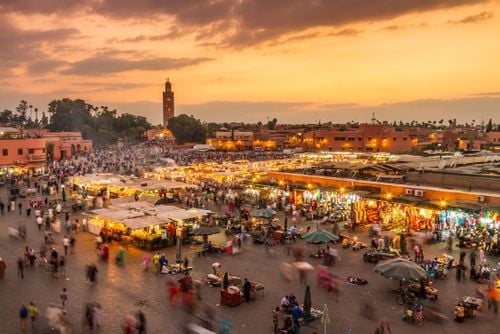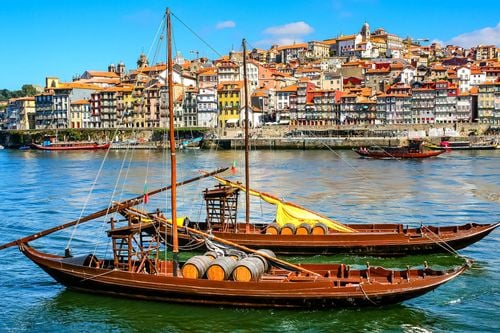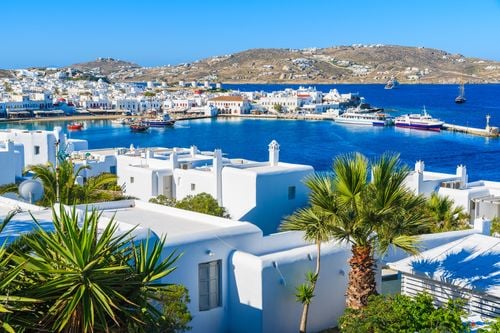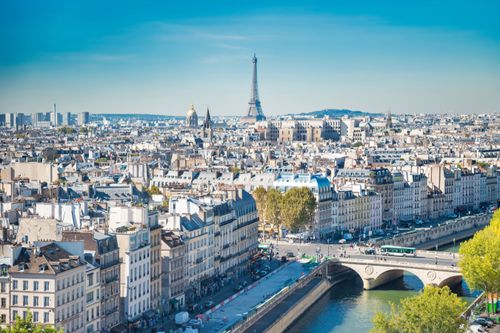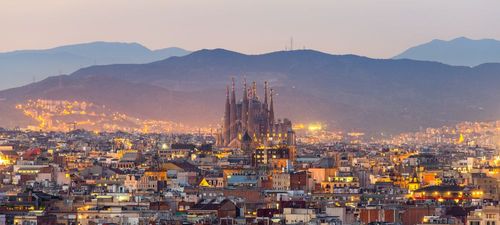To protect the coral reef, Réunion's marine nature reserve was created in 2007. This protects it from the various activities that are harmful to its environment. It protects a large part of the coral reef on the island's west coast and gives you the chance to see turtles in particular!
Réunion Island is bathed on all sides by the Indian Ocean. It boasts a highly diversified seabed, the relief of which has been shaped by recent volcanic activity. The plethora of marine life includes coral reefs and pelagic fish. The lagoon, which is very clear and shallow, is home to starfish, hermit crabs, box fish, damselfish, butterfly fish, surgeonfish and crabs.
On the other side of the barrier reef, along the drop-offs or further out in the ocean, there are groupers, turtles, rays, marlin and sharks. Don't hesitate to dive and get up close to these brilliantly coloured animals, some of which seem to wear the colours of the rainbow on their fins.
And the open sea is no match for the fullness of these transparent waters. From June to October, it is home to one of Reunion's greatest wonders: the majestic humpback whales! You can also admire the ballet of the dolphins, or better still, swim alongside them.
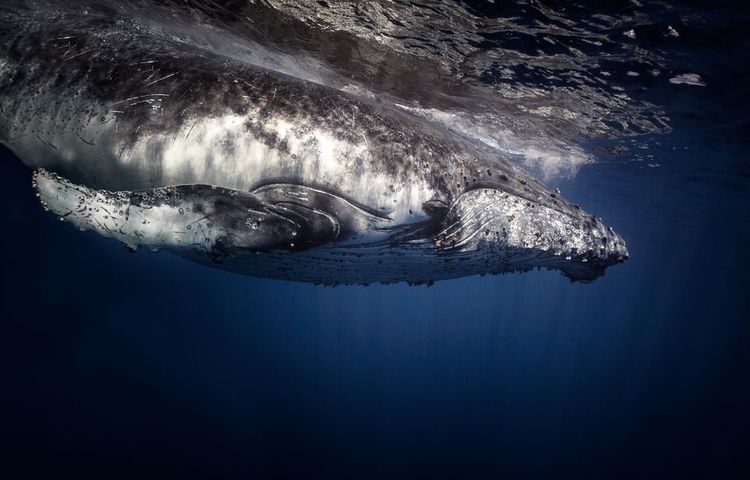
Humpback whales on Reunion Island
- © Seb c'est bien / Shutterstock✈️ Fly to Reunion Island!
Compare prices and book your plane ticket to Réunion!Diving in the lagoon
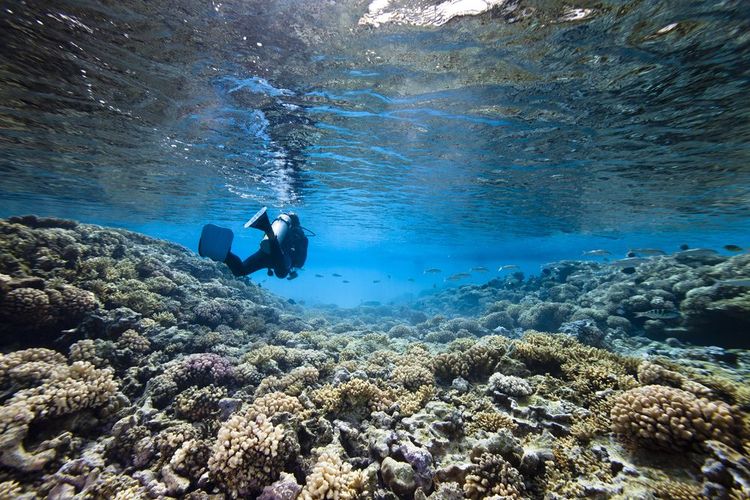
Diving in the translucent lagoon
- © Miko Atori / ShutterstockDive into the lagoon's warm, clear turquoise waters and discover its most beautiful marine species. The coral reefs and multicoloured fish species will take your breath away! Accompanied by a guide, equipped with masks, flippers and snorkel, you'll discover the beauty and fragility of this reef, a showcase of remarkable biodiversity.
Practical info
A number of service providers offer introductory courses and easy first dives (Cap La Houssaye), while regular divers can explore other sites: wrecks off Boucan Canot, Saint-Gilles or Saint-Leu; the Ermitage pass (Saint-Gilles) with its turtles or La Pointe au Sel (Saint-Leu), whose 70-metre drop-off is frequented by tuna, jacks and dolphins...
Turtle watching at Kélonia
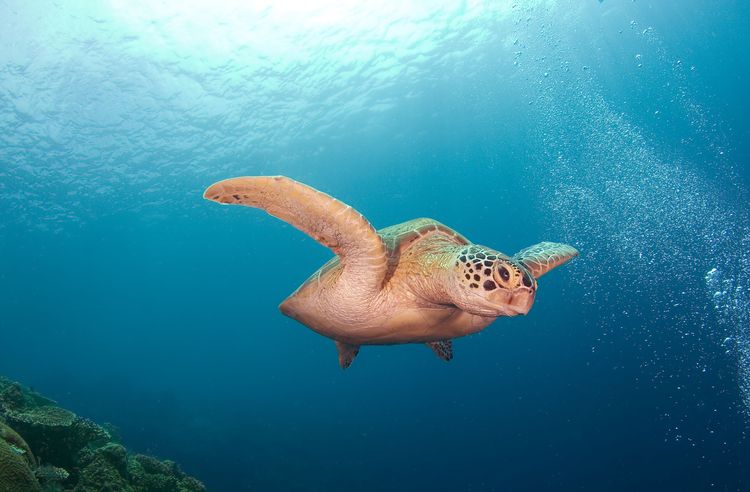
Turtles on Reunion Island
- © Tatiana Belova / ShutterstockNext stop is Saint-Leu to discover the Kélonia sea turtle observatory. An aquarium, research centre and museum rolled into one, this place puts all its energy into protecting sea turtles. In the basement, the turtles' natural habitat has been recreated in vast basins. You can watch them evolve through large windows.
The care centre collects, feeds and cares for injured turtles before releasing them back into the ocean once they have recovered. Kélonia offers interactive activities to raise visitors' awareness of the need to preserve the natural environments that are vital to the turtles' survival.
Practical info
Times: Open Monday to Sunday, 9am to 6pm.
Admission: Full price €8 / Concession €5 / Free for children under 4.
Guided tours: At 10am, 11.30am, 2pm, 3.15pm and 4.30pm. No booking required, subject to availability.
For more information, visit the Kélonia sea turtle observatory website.
Dolphin watching
Here's a seaside getaway you won't soon forget! If you dream of seeing dolphins, Réunion Island is one of the best places in the world to observe them in their natural habitat. The island enjoys a privileged location, and these mischievous animals put on a show for all to see, right next to the coast. So there are plenty of opportunities to see them!
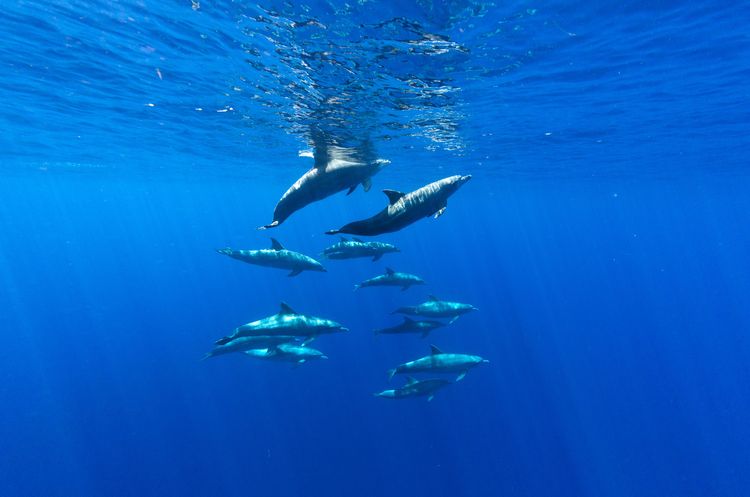
A pod of dolphins in crystal-clear waters
- © Joost van Uffelen / ShutterstockYou can take advantage of a trip out to sea to see the dolphins up close: on a relaxing catamaran cruise, in a small group on a RIB or even in a more original way on board a transparent-bottomed boat. Groups of playful dolphins often join in the fun, following the boat or leaping out of the water. Magic guaranteed!
You can also go snorkelling with the dolphins at certain diving clubs and service providers in Saint-Gilles, Saint-Leu and Le Port. This encounter with the dolphins is always a marvellous moment, but it must be done with respect for their living space and the dolphin-watching charter. In all cases, remember to use the services of committed professionals who will be able to pass on their passion and allow you to observe these exceptional mammals in a way that respects them.
Testimonial
If you'd like to enjoy this experience with dolphins (or whales), we recommend Duocean. It's a unique, magical and, above all, animal-friendly experience in the company of Manu, the creator of the passive cetacean observation protocol.
Whale watching
On Réunion Island, as well as the permanent spectacle of the dolphins, you can observe the majestic humpback whales during the austral winter, from June to October.
There are two options. The first is to watch the whales from the coast. The Grande Anse in the south and the Barachois de Saint-Denis further north, for example, are particularly good spots, as is the whole of Réunion's west coast. Cap La Houssaye and the beach at Boucan Canot are also magnificent places to admire them with your feet in the sand. On the other hand, whales never come very close to the coast, so don't forget your binoculars for a better view.
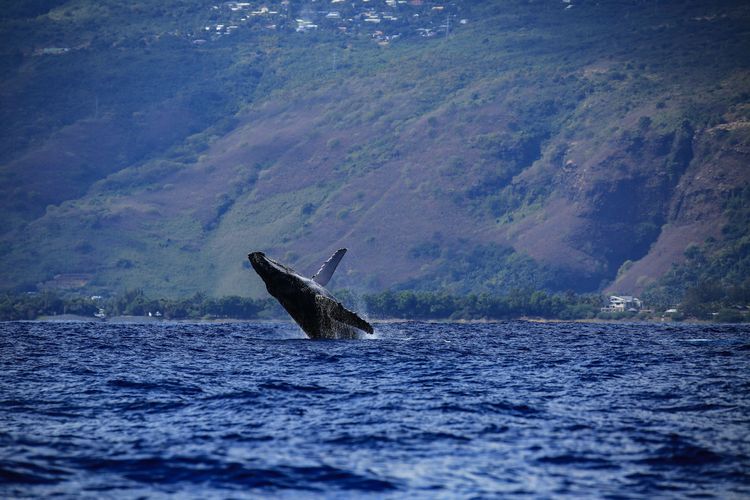
An impressive encounter with a whale
- © Aymeric Bein / ShutterstockThe second option, which is much more intense and impressive, is to sail out to sea to get as close as possible to them. Many companies offer excursions at sea to observe them in their natural environment. Better still, as with dolphins, some clubs organise scuba-diving trips, so you can swim close to these sublime mammals. During your boat trip, you'll probably be joined by groups of dolphins!
Practical info
Réunion is a protected area and there are certain rules to be observed when watching marine mammals. For the well-being and preservation of the ocean's fauna, a " Charter for the responsible approach and observation of marine mammals and sea turtles on Réunion" has been drawn up.
You should also give preference to service providers with the O²CR label. This label is exclusively reserved for all organisations that undertake to comply with the laws in force to protect marine species and their environment.
